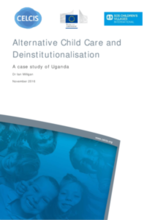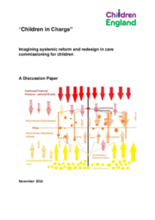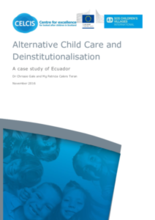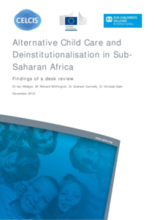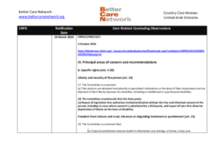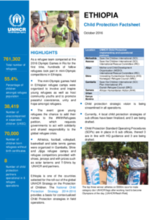Displaying 951 - 960 of 1510
This document discusses the means by which the Council for the Administration of Criminal Justice and Youth Protection in the Netherlands (the Council) can provide the highest level of protection for children placed in the intercountry adoption focus group.
This report is a case study on alternative care arrangements and deinstitutionalisation in Uganda.
This paper is an attempt at rethinking the systemic problems facing the funding and commissioning of care services and placements for children in need of care and adoption, across ALL types and specialisms of placement, from kinship care, through foster care, to residential care and adoption.
The European Commission Directorate-General for International Cooperation and Development (DG DEVCO) commissioned SOS Children’s Villages International to undertake case studies of arrangements for ‘alternative child care’ in six non-European countries across three continents to help inform the EU’s future strategy for provision of support for children in countries outside Europe. This report is a case study of one of the six countries, Ecuador.
This desk review provides a brief mapping and summary of existing knowledge on alternative care and deinstitutionalisation in Africa.
In this video from United Aid for Azerbaijan, several experts and public officials discuss the importance of deinstitutionalization.
Employing focus groups and participant-observation, this exploratory study examined areas of personal development, knowledge, and skills of young women who were formally in residential care in the Philippines to determine success factors for young women with traumatic histories.
This country care review includes the care-related Concluding Observations adopted by the Committee on the Rights of Persons with Disabilities during the sixteenth session (15 Aug 2016 – 2 Sept 2016) of the Convention on the Rights of Persons with Disabilities.
In this Ethiopia Child Protection Fact Sheet, UNHCR provides the main child protection highlights, issues, and trends for 2014 to 2016.
This study examined whether interventions in Russian Baby Homes promoting warm, sensitive, and responsive caregiver-child interactions and relationships would be associated with advantages in those children’s behavior years after they transitioned to family care.


